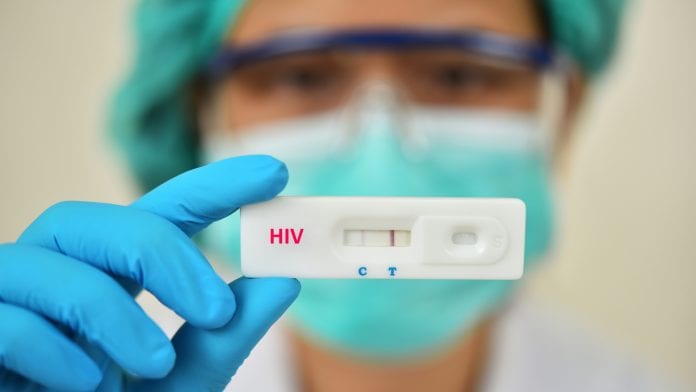
The European Centres for Disease Prevention and Control (ECDC) and the World Health Organization (WHO) are calling for better HIV testing across Europe.
The ECDC and WHO are calling for better human immunodeficiency virus (HIV) testing across the continent as the number of people living with virus who are undiagnosed is rising. New data published by the two organisations has revealed the number of people being diagnosed with HIV in Europe is rising, with 136,000 being diagnosed in 2019.
They highlight that 53% of HIV diagnoses happen at the late stage of infection, which shows that European testing strategies are not sufficient to catch the virus early.
Dr Hans Kluge, WHO Regional Director for Europe, says: “I remember when a diagnosis of HIV seemed like a death sentence. Now, with proper treatment, people with HIV can live without fear of AIDS. These data are from 2019, and the question in 2020 has to be what effect the pandemic will have had on testing by the end of 2021. For now, our message has to be to protect the progress of the last decade by continuing to prioritise HIV testing and getting treatment to those who need it. We cannot allow the pandemic to rob us of an AIDS-free future that is within our grasp.”
Early HIV diagnosis
The United Nations Sustainable Development Goals aim to wipe out AIDS – the late stage HIV infection – epidemic by 2030. In keeping with this, the number of people diagnosed with the syndrome has halved in the last decade. However, in Europe 74% of 2,772 diagnoses in 2019 were made shortly after an HIV diagnosis, and the number of people newly diagnosed with HIV has increased by 16% since 2010. In contrast, the proportion of new diagnoses across EU/EEA countries has declined by 9% over the same period.
The number of newly reported HIV diagnoses and the estimated number of new HIV infections in the region show that more people have become infected with HIV over the last decade than have been diagnosed, indicating that the number of people living with undiagnosed HIV is increasing. The opposite has been happening in the EU and EEA regions, with the number of people diagnosed falling.
ECDC Director Dr Andrea Ammon said: “Despite the focus on COVID-19 right now, we must not lose sight of other public health issues like HIV. Earlier diagnosis of HIV is an urgent priority. We cannot reach the Sustainable Development Goal target if it takes an average of three years for people to find out that they are HIV-positive after infection with the virus. Three years during which life-saving treatment is not available to them and during which they can unknowingly pass on HIV. If we want to reduce the high proportion of people diagnosed late, it is essential to diversify our HIV testing strategies as outlined in the ECDC testing guidance, for example.”
Reducing transmission
According to 2019 data, the proportion of those who are diagnosed late increases with age, showing that one in five new HIV diagnoses was in a person over 50.
The WHO Europe and ECDC have put forward three recommendations to mitigate HIV transmission, including:
- Prioritising a range of prevention measures, such as awareness-raising, promotion of safer sex, condoms, provision of needle exchange programmes and opioid substitution therapy, and pre-exposure prophylaxis for HIV, also known as PrEP
- Providing efficient HIV counselling and testing services, including rapid diagnostic services, community-based HIV testing, and HIV self-testing
- Ensuring rapid access to quality treatment and care for those diagnosed







